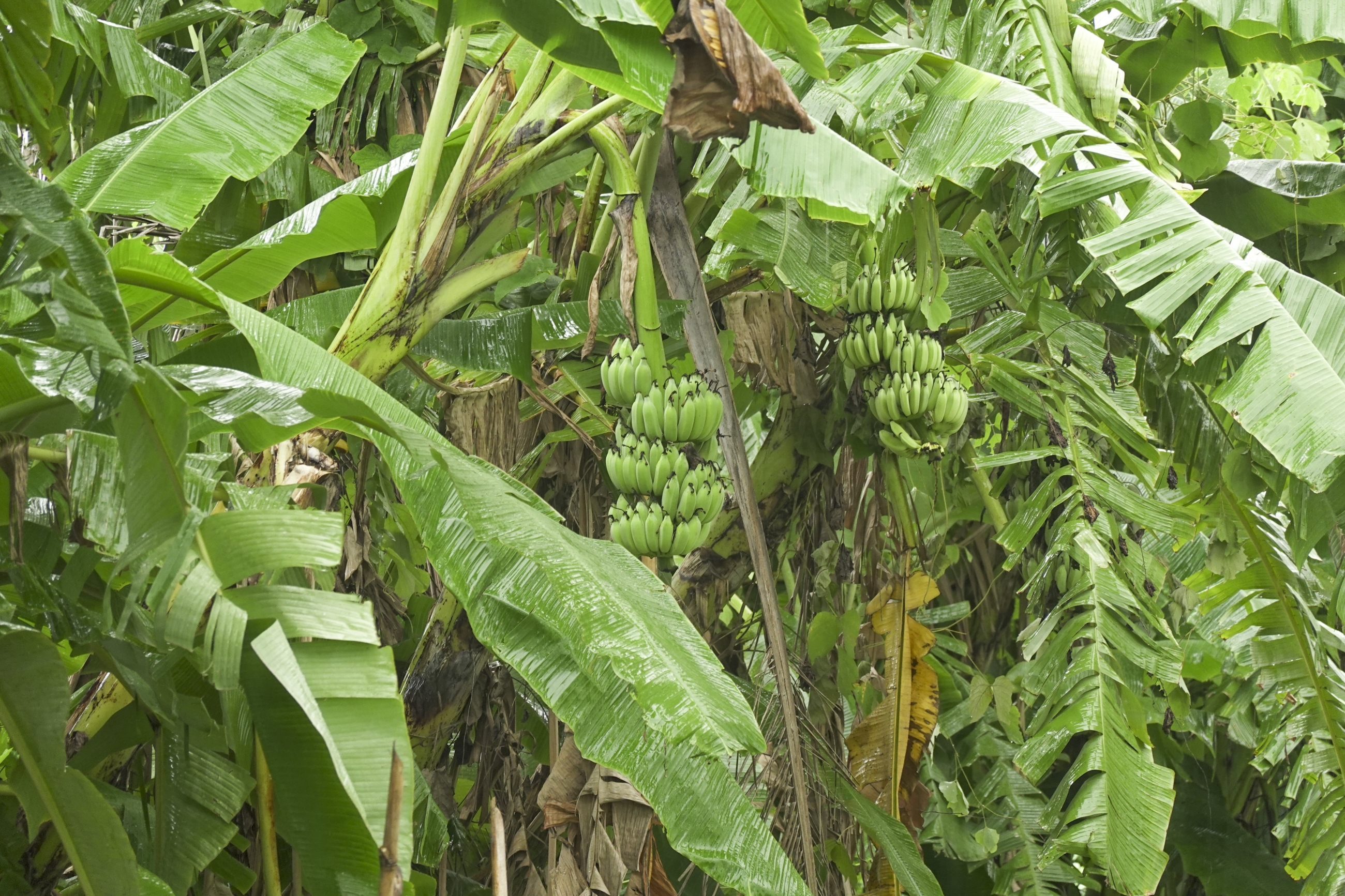
Ce projet vise à renforcer les capacités régionales et nationales en matière de diagnostic, de surveillance, de contrôle et de gestion du virus du bunchy top du bananier (BBTV) dans les 10 pays producteurs de bananes d'Afrique subsaharienne. Il vise à améliorer l'accès aux marchés, à réduire au minimum les pertes et à préserver les moyens de subsistance tributaires de la banane dans les pays bénéficiaires en sensibilisant les parties prenantes, en élaborant des procédures opérationnelles normalisées (PON) harmonisées, en développant des outils fondés sur les TIC pour la gestion du BBTV et en favorisant la production et le commerce de plants de bananiers sain.
La banane, y compris le plantain, est une culture cruciale pour la sécurité alimentaire, le commerce et les moyens de subsistance en Afrique, qui représente près de la moitié de la superficie mondiale consacrée à la production de bananes. Le fruit, la plante et les produits transformés sont largement commercialisés et constituent une source vitale de revenus pour de nombreux petits exploitants de la région. Étant donné que les exportations des pays africains peuvent atteindre jusqu'à 700 000 tonnes par an et que la demande mondiale devrait croître de manière soutenue, la filière africaine de la banane pourrait atteindre 36 millions de tonnes de production et une valeur marchande de 32,4 milliards de dollars EU d'ici à 2035.
Toutefois, la propagation rapide du virus du bunchy top du bananier (BBTV), inscrit sur la liste A1 des organismes de quarantaine et classé parmi les 100 espèces les plus invasives du monde, constitue une grave menace pour la production bananière en Afrique. Au cours des 15 dernières années, le BBTV s'est répandu de manière agressive dans 18 des 42 pays africains producteurs de banane, touchant 80% des superficies de production. Ses effets entraînent de graves pertes de production et sont exacerbées par une sensibilisation limitée, une surveillance déficiente, des capacités de diagnostic insuffisantes et le commerce informel de plants de bananiers, ce qui a provoqué des pertes économiques estimées entre 200 et 600 millions de dollars EU en Afrique subsaharienne.